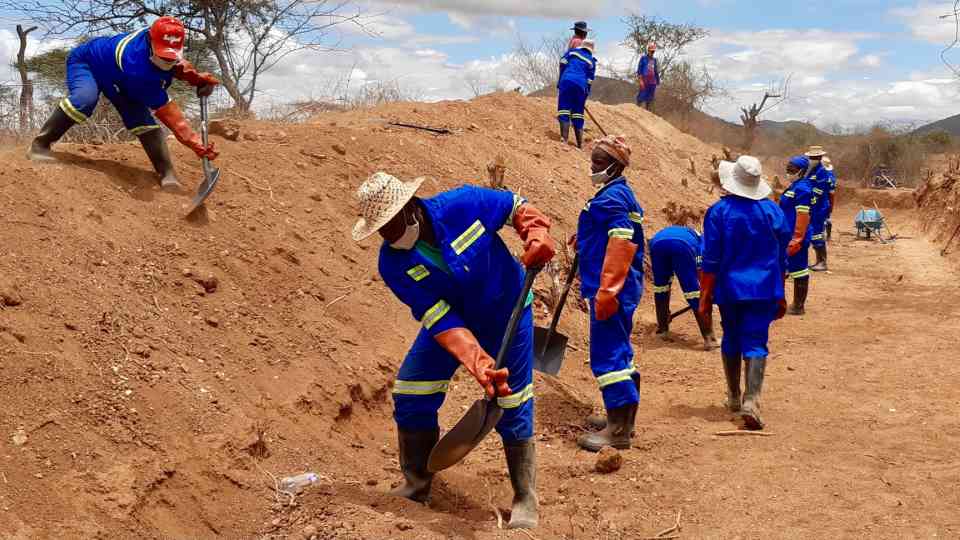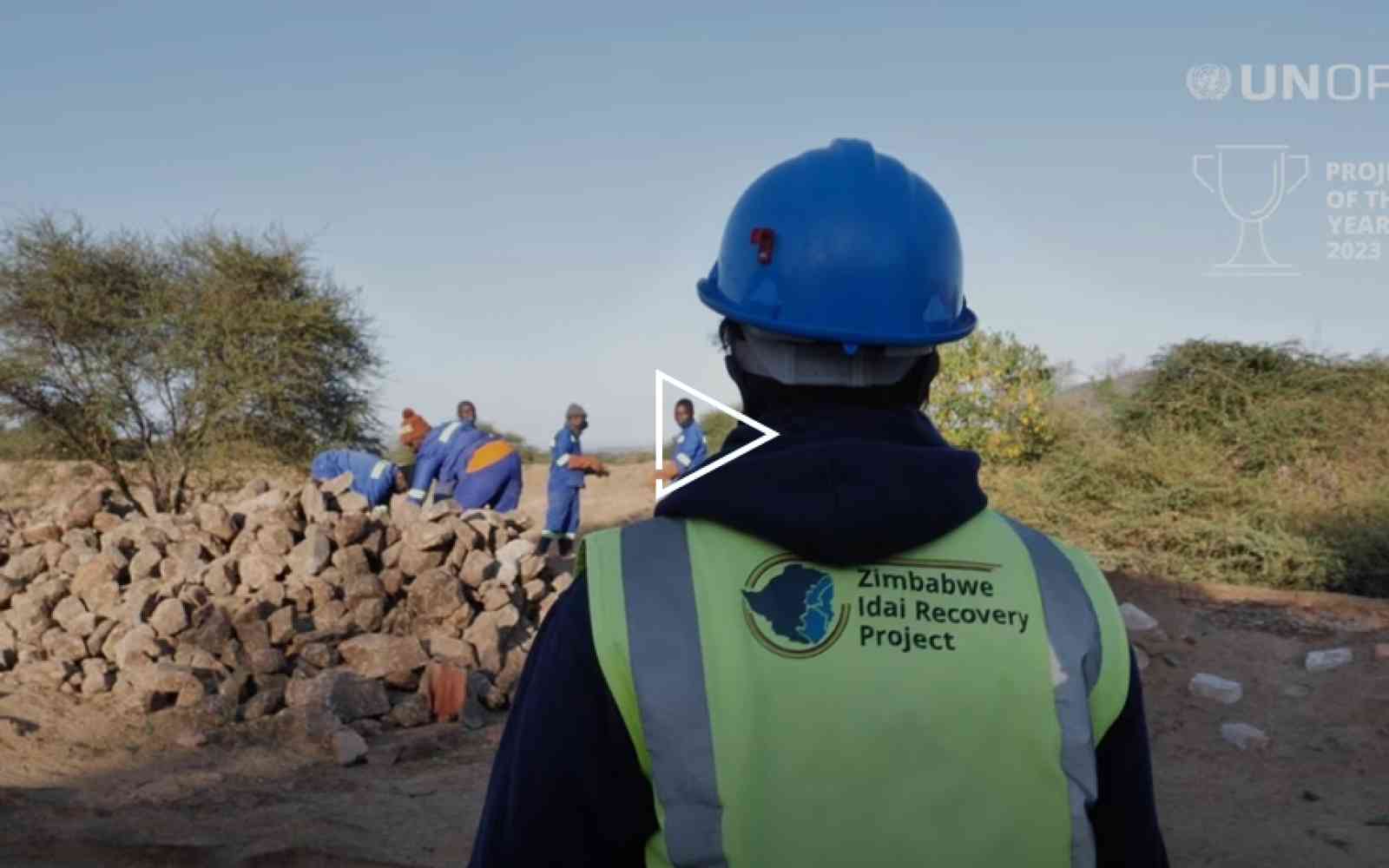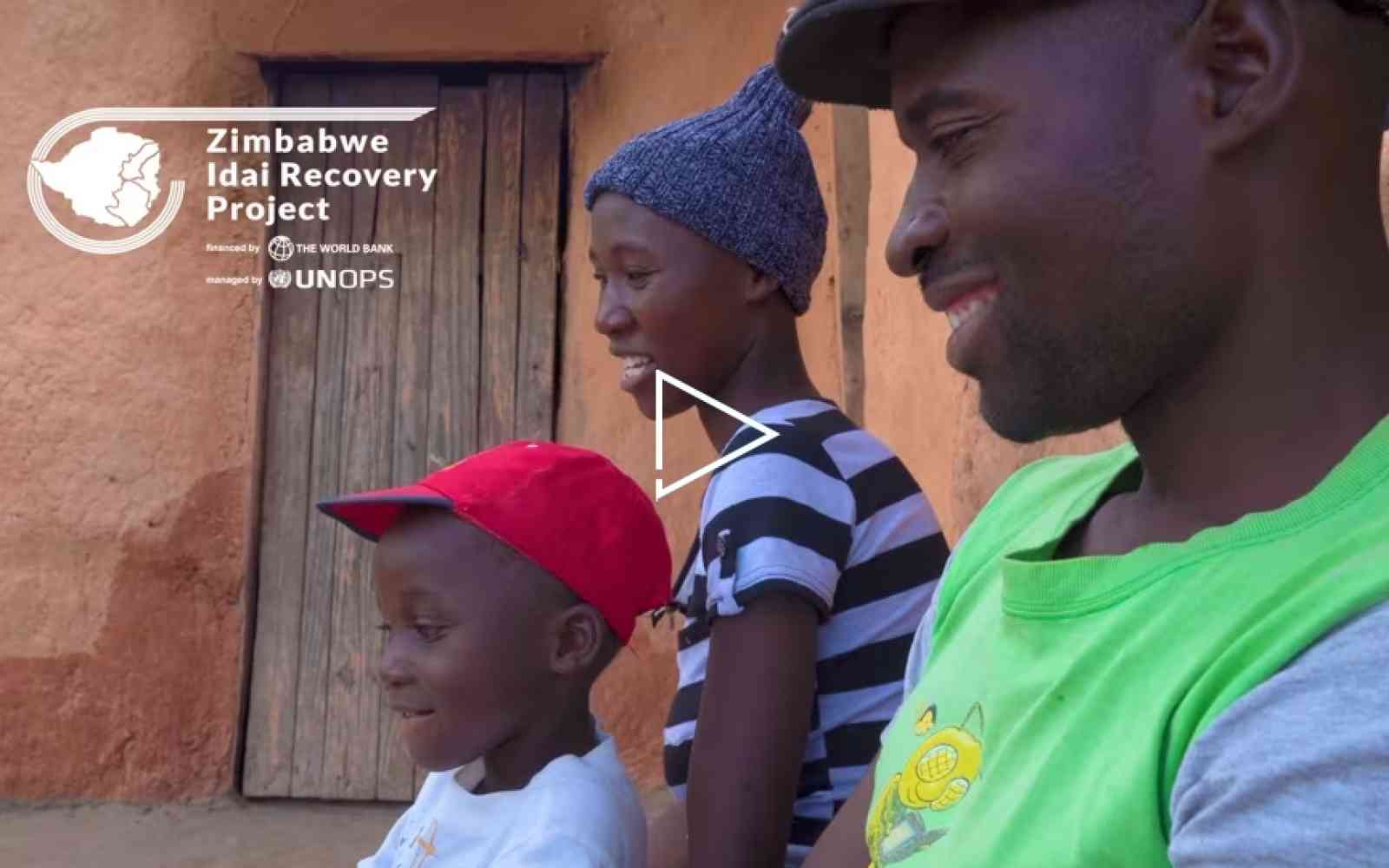The United Nations Office for Project Services (UNOPS)
To build a better world, we must cooperate in the face of disaster

When disaster strikes, coming together to support impacted communities not only helps with their recovery – it can set them on the path to a more resilient, sustainable future.
Extreme weather events are becoming more frequent and putting some of the world's most vulnerable people at risk. Cyclones, heavy rains and floods, and prolonged droughts destroy lives – and negatively impact development.
We have to shift our focus from just responding to immediate needs in the aftermath of natural hazards, to also reducing risks and vulnerabilities to climate shocks in order to support long-term sustainable development.
To help mitigate the worst effects when a natural hazard hits, early recovery efforts that build up community resilience are vital. Multi-stakeholder partnerships play a key role in this.
Through effective partnerships, we can help bring together and share the knowledge, expertise, and technical and financial resources needed to build a more resilient future.
When Cyclone Idai hit Zimbabwe in March 2019, it uprooted communities, damaged vital infrastructure, and destroyed livelihoods. About 50,000 households were destroyed and more than 60,000 people were displaced. Nine districts in the country faced up to $622 million in damages.
The scale of devastation was too much for one country to manage on its own. This level of destruction required collaboration between civil society, governmental, non-governmental and international organizations, all working towards the same goal: recovery and resilience.
Under the World Bank-funded Zimbabwe Idai Recovery Project managed by UNOPS, 8 UN organizations, 12 non-governmental organizations and the government of Zimbabwe worked together to support the country on its path to build forward.
To ensure the effective delivery of the project, UNOPS set up and managed the Project Implementation Unit, which provided project management and financial oversight, environmental and social safeguards management, and stakeholder management, among other things.
With UNOPS coordination, the Food and Agriculture Organization, the International Organization for Migration, UNESCO, UNICEF, the UN Population Fund, the World Food Programme and the World Health Organization all worked together to assess the losses and damages from the cyclone as well as to develop a recovery and long-term resilience-building strategy that addressed food security, livelihoods, health, education, water and sanitation, and infrastructure needs.
This approach helped bridge silos that often spring up between different sectors and improved coordination between stakeholders, leading to a more effective and efficient response.
The result?
The rehabilitation of health facilities, water systems and sanitation facilities, schools, irrigation schemes, micro-watersheds and roads that connected people to services – all infrastructure that's vital to the more than 346,000 people that call the impacted communities home.
Integrated health services and gender-based violence response for more than 672,000 people, including more than 3,600 internally displaced people.
Employment opportunities on high labour-intensive, community-focused infrastructure projects for more than 5,200 community members, nearly half of whom were women, helping build community capacity and resilience by providing necessary infrastructure development skills.
Training for local authorities on the operation and maintenance of the infrastructure that was built, ensuring it remains in good working order for communities.
And stronger disaster risk governance and preparedness for Zimbabwe's national and local government, thanks to the early warning and risk information systems developed to inform disaster risk preparedness and contingency planning.
Not only did the project support recovery after a devastating natural disaster, but it also helped lay the foundation for more resilient communities that can withstand future climate-related disasters.
The lessons learned from this project could be applied more broadly: to other countries both in the region and around the world.
Sheila Omom
Sheila Omom is a UNOPS Monitoring and Evaluation Specialist in Zimbabwe and the project manager for the Zimbabwe Idai Recovery Project. She has more than 10 years of experience working on international development programmes across Africa and Latin America. This includes work in programme management, monitoring, evaluation, reporting and learning, and gender-based programming across diverse sectors, such as emergency response, youth livelihood, education, and health.















